Lojong Mind Training Lessons 15 – 21
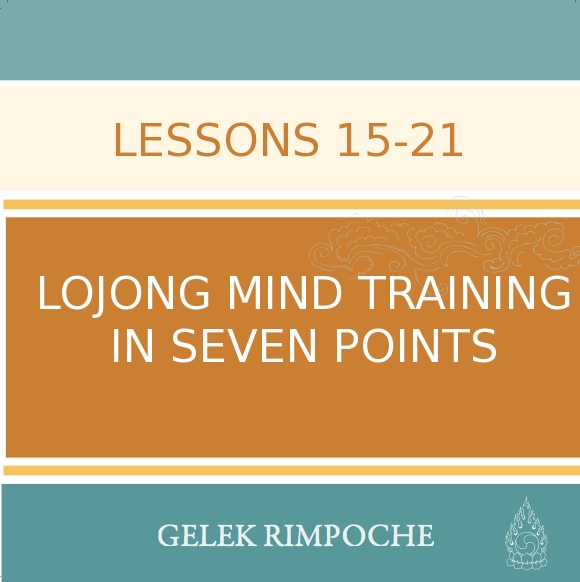
According to Buddha the original cause for our experiencing happiness and suffering lies within our own minds. If we want to free ourselves from problems and pain, we have to free ourselves from addictive habitual patterns.
The most compelling and hardest to come to terms with is the continual creation of ego. In this lojong commentary Gelek Rinpoche hands us “nine bullets to shoot at the ego”.
If they reach their target, the way is clear towards opening up towards our innate goodness.
Click here to view lessons 8-14.
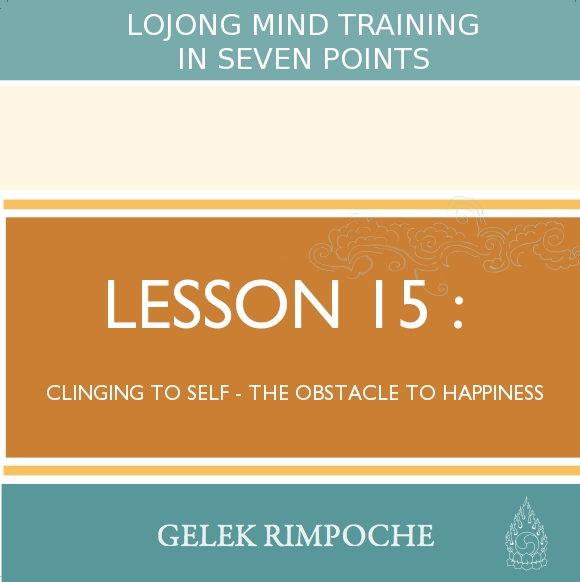
Clinging to Self – the Obstacle to Happiness
Lesson Number 15 of 27
In this lesson Gelek Rimpoche probes a Buddhist understanding of this ‘clinging to self’ from different angles to make it relevant for his spiritual friends.
Rimpoche uses topical villains drawn from the day’s news to set the stage into which he applies spiritual insights like Shantideva’s ‘ghost’ that is always with us. He then turns to traditional stories to illustrate our struggle with this shadowy ghost who has stolen all our happiness and joy.
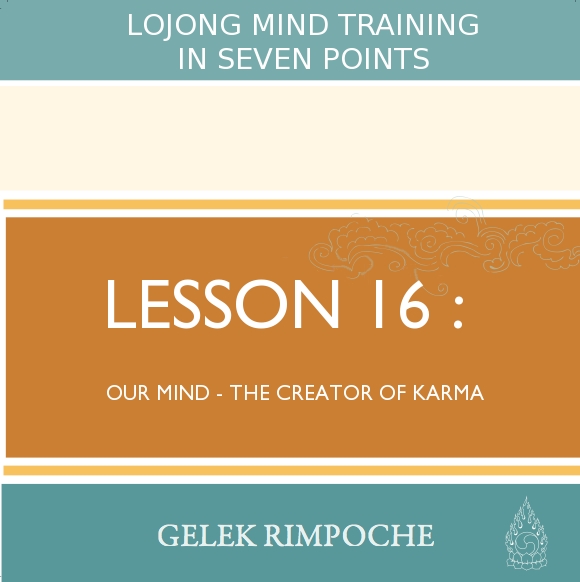
Our Mind – the Creator of Karma
Lesson Number 16 of 27
In this lesson Gelek Rimpoche focuses on Karma as the controlling factor of our lives. He
stresses the importance of mind in creating karma and offers it as a precursor to both speech and action. After discussing positive, negative, and neutral actions he suggests that all the suffering in all of existence comes from our love of ego.
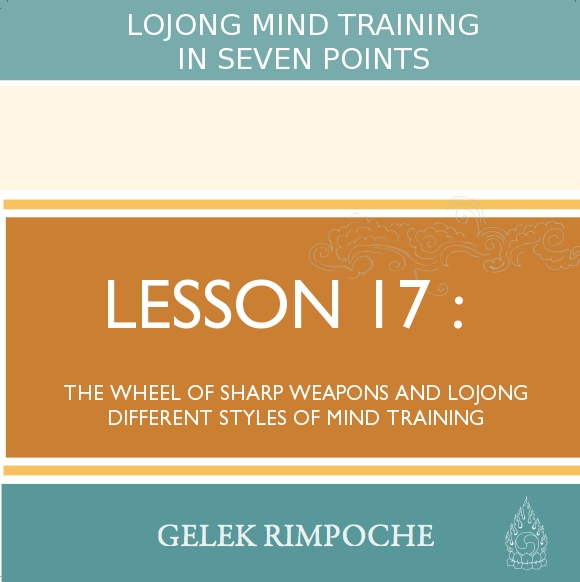
The Wheel of Sharp Weapons and Lojong – Different Styles of Mind Training
Lesson Number 17 of 27
In this lesson Gelek Rimpoche quotes from the Wheel of Sharp Weapons which he offers as
an analogous form of mind training to Lojong. He suggests that our habit of blaming others is misguided. Our survival being dependent upon others and their kindnesses … we should turn all blames to our own ego.
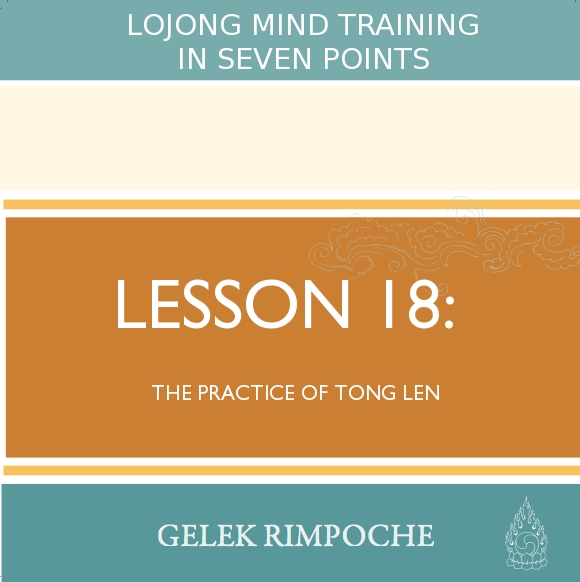
The Practice of Tong Len
Lesson Number 18 of 27
In this lesson Gelek Rimpoche discusses the practice of Tong Len (exchanging self for others).
Tong Len counters the ego by turning it around to pursue opposite tendencies. We imagine
taking in the worst qualities of others and giving back the best of what we have. Although Tong Len is imaginary in one sense, it is an effective mind training technique.
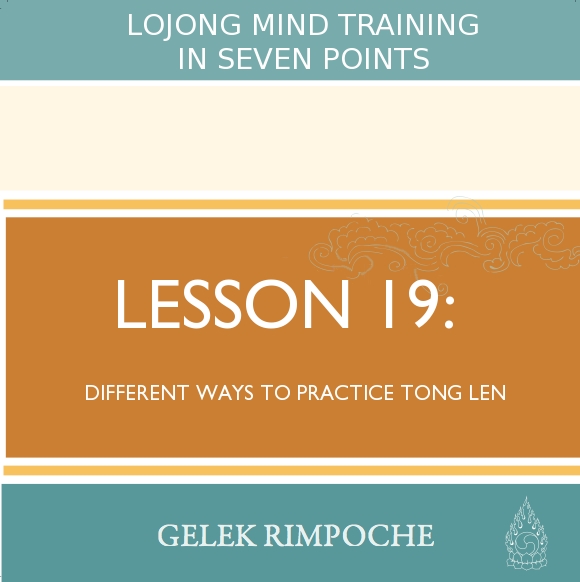
Different Ways to Practice Tong Len
Lesson Number 19 of 27
In this lesson Gelek Rimpoche expounds on different ways of meditating Tong Len. He explores ways to see others that begin to trick the ego and empathize with the plight of our fellow beings.
He discusses visualizing the ego as a heap of dirty things in the center of the body – this
is the target of our work. When giving energy back to others he suggests visualizing it as a wish- fulfilling genie lamp. He concludes by connecting Tong Len practice to the Four Noble Truths.
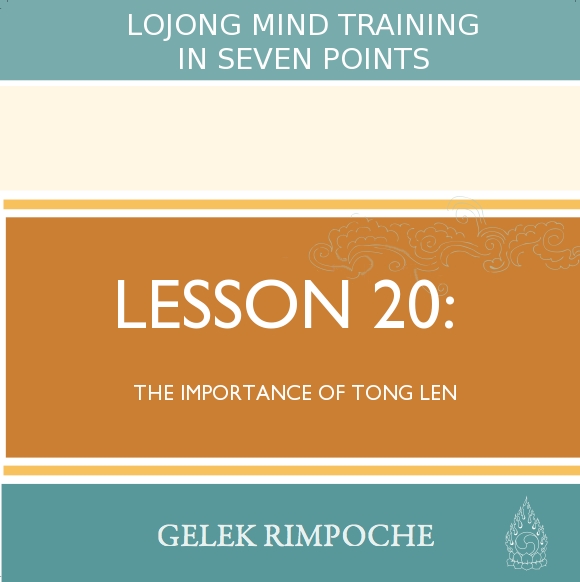
The Importance of Tong Len
Lesson Number 20 of 27
In this lesson Gelek Rimpoche summarizes the importance of Tong Len. He states that ‘taking’ is training in compassion while ‘giving’ is training in love. Love and Compassion are one mind with two separate aspects.
Compassion longs to remove suffering from all sentient beings just as love wishes them joy and happiness. He shows how to use the Lama Chopa verse for three types of giving (body, wealth, and spiritual development).
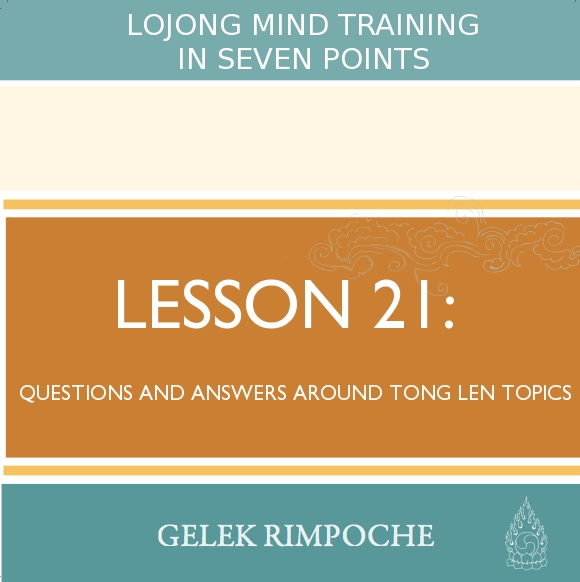
Questions and Answers Around Tong Len Topics
Lesson Number 21 of 27
In this session Gelek Rimpoche answers questions that range from topics of ego, bodhimind,
compassion, to fears about the Tong Len exchange practice itself.

